Earth
Sign up for our newsletter
We summarize the week's scientific breakthroughs every Thursday.
-
 Environment
EnvironmentEPA boosts estimate of U.S. methane emissions
A new report by the U.S. Environmental Protection Agency revises the agency’s methane emission estimates upward by 3.4 million metric tons.
-
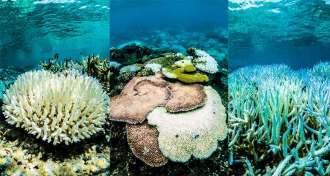 Ecosystems
EcosystemsHeat may outpace corals’ ability to cope
Corals may soon lose their ability to withstand warming waters.
-
 Environment
EnvironmentEPA underestimates methane emissions
Methane estimates by the Environmental Protection Agency fail to capture the full scope of U.S. emissions of the greenhouse gas, studies show.
-
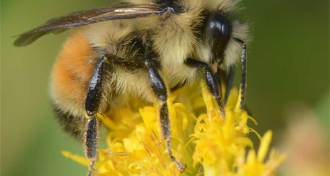 Climate
ClimatePollen becoming bee junk food as CO2 rises
Rising CO2 lowers protein content in pollen, threatening nutrition for bees.
By Susan Milius -
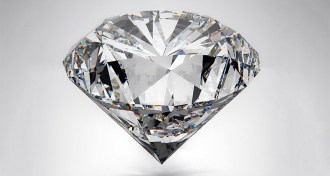 Earth
EarthMost diamonds share a common origin story
Most diamonds form from fluids deep inside Earth’s interior that contain carbonate compounds, new research suggests.
-
 Climate
ClimateScience’s inconvenient (but interesting) uncertainties
In the latest issue of Science News, Editor in Chief Eva Emerson talks climate change, mouth microbes, and synthetic life.
By Eva Emerson -
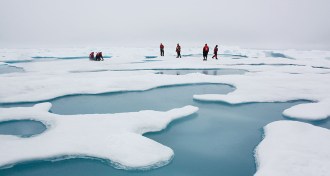 Climate
ClimateChanging climate: 10 years after ‘An Inconvenient Truth’
In the 10 years since "An Inconvenient Truth," climate researchers have made progress in predicting how rising temperatures will affect sea level, weather patterns and polar ice.
-
 Oceans
OceansReaders question ocean health
Ocean plastics, ant behavior, pollution solutions and more in reader feedback.
-
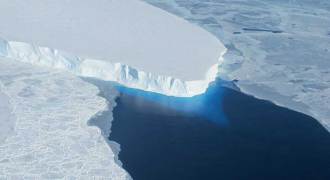 Climate
ClimateSea levels could rise twice as fast as previously predicted
Sea level rise from Antarctica’s melting ice could accelerate faster and sooner than previously thought.
-
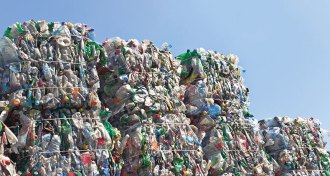 Microbes
MicrobesThis microbe makes a meal of plastic
A newly identified bacterium can break down plastic waste.
-
 Environment
EnvironmentDome effect leaves Chinese megacities under thick haze
Airborne black carbon lowers an atmospheric boundary, trapping pollution around major cities and worsening air quality, researchers propose.
-
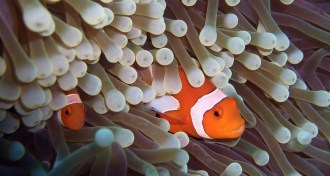 Animals
AnimalsIn the Coral Triangle, clownfish figured out how to share
In the Coral Triangle in Southeast Asia, an area of rich biodiversity, clownfish species often share anemones, a new study finds.